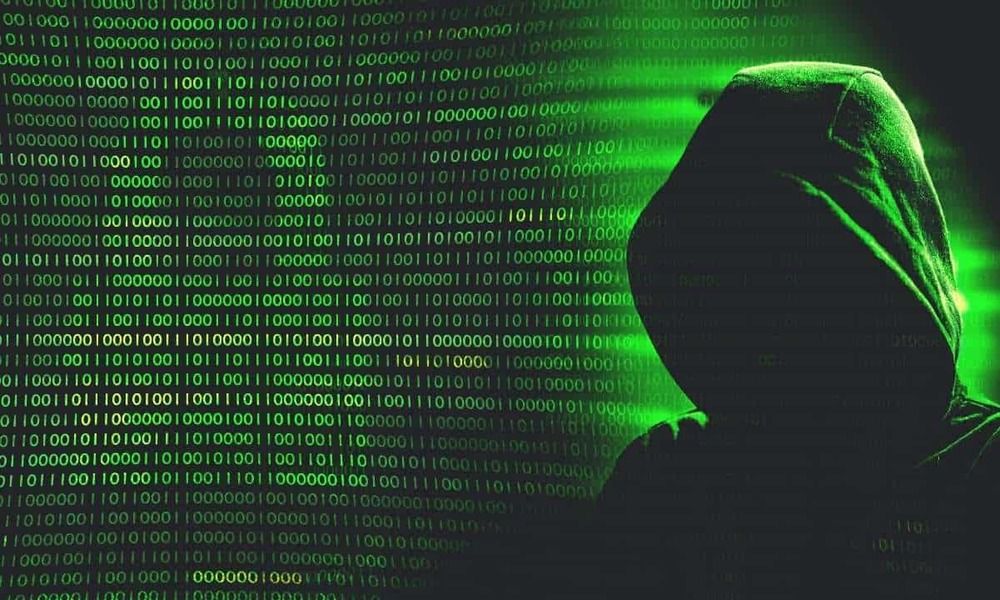Could the cryptocurrency’s huge electricity consumption also sink it?



A blockchain-based initiative from the United States Air Force will employ Constellation’s Hypergraph Network to provide data security with the Department of Defense’s commercial partners.
In a Thursday announcement, Constellation said it had been working with Kinnami Software Corporation to develop an end-to-end data security solution using blockchain encryption and distributed data management for the United States Transportation Command, Air Mobility Command’s 618th Air Operations Center, and a Civil Reserve Air Fleet partner. According to the platform, its goal is to securely exchange data with commercial partners on missions involving the operations of aircraft and ships under contract to the Department of Defense, or DoD.
The United States Transportation Command, or USTRANSCOM, allows authorities — including those in the 618th — to coordinate missions using available resources from both the military and private sector. Constellation Network’s solution may have the potential to improve the existing cybersecurity and general effectiveness.

El Salvador began installing Bitcoin ATMs, allowing its citizens to convert the cryptocurrency into U.S. dollars and withdraw it in cash, as part of the government’s plan to make the token legal tender.
The government will install 200 of the teller machines to initially accompany its digital wallet called Chivo, a local slang term for ‘cool,’ President Nayib Bukele said on Twitter. Transactions will be commission free, he said, adding that there will also be 50 financial branches across the country for withdrawing or depositing money.
Blockchains work like DNA, says a new study. Its instructions are replicated across thousands of “nodes,” much as DNA is replicated in cells.

Hackers have siphoned $611 million worth of cryptocurrencies from a blockchain-based financial network in what’s believed to be one of the largest heists targeting the digital asset industry, putting it ahead of breaches targeting exchanges Coincheck and Mt. Gox in recent years.
Poly Network, a China-based cross-chain decentralized finance (DeFi) platform for swapping tokens across multiple blockchains such as Bitcoin and Ethereum, on Tuesday disclosed unidentified actors had exploited a vulnerability in its system to plunder thousands of digital tokens such as Ether.
“The hacker exploited a vulnerability between contract calls,” Poly Network said.
Check out our new promo for #transvision #future Summit 2021! Get your tickets! -> www.TransVisionMadrid.com There will be talks about #longevity #artificialintelligence #cryonics and much much more. You will also be able to network with speakers and attendees during 5 optional dinner/cocktails, and 2 tours of several UNESCO heritage sites and historical places: Ávila, Segovia, Monsaterio de El Escorial, Valle de los Caídos (Valley of the Fallen), Aranjuez & Toledo.
Humanity Plus Humanity Plus Humanity Plus Magazine MUTISHAN Interactive Vivian Francos #SEOHashtag Alcor Life Extension Foundation Cryonics Institute Cryonics Institute SENS Research Foundation SENS Research Foundation Posthuman Network Posthuman Network Cryonics4U Longevity Conferences Longevity for All U.S. Transhumanist Party Transhumanist Party Australia Transhumanist Party Virtual Rational Transhumanism Singularity University Ray Kurzweil Singularity Singularity Hub Ray Kurzweil’s Singularity Singularity Network Transhumanismo Brasil Transhumanismo Brasil TRANSHUMANISMO Christian Transhumanist Association Mormon Transhumanist Association SingularityNET Singularitarianism Foresight Institute Lifeboat Foundation Lifeboat Foundation Machine Intelligence Research Institute KrioRus The Hedonistic Imperative — Paradise Engineering.
Promo by sergio tarrero for alianza futurista & transvision madrid.
http://www.TransVisionMadrid.com.
Spain will host the next world futurist summit on October 8, 9 and 10, 2021. Humanity+ will be the main international organizer of this international congress. Afterwards, during October 11 and 12, we will continue with informal conversations while traveling to UNESCO World Heritage Sites around Madrid: Aranjuez, Ávila, El Escorial, Segovia y Toledo. Every night will finish with optional cocktails in beautiful places for networking and meeting the participants and speakers.
Pulsechain has raised $25000, 000 for antiaging medical research after 5 days of a 14 day fundraiser. You must follow the SENS.org PulseChain instructions. Sacrifices to SENS.org during the sacrifice phase earn 25% less points compared to sacrifices at Pulse.info. SENS.org can also accept stocks and bank wires. Once the sacrifice phase is over, the total sacrifice points for each sacrificer’s address’s points (at the same metamask address) are totaled up across all the supported chains and the SENS.org report. This creates a list of sacrificers ranked by total points from largest to smallest.
SENS Research Foundation has been working to develop, promote, and ensure widespread access to therapies that cure and prevent the diseases and disabilities of aging by comprehensively repairing the damage that builds up in our bodies over time. SENS is redefining the way the world researches and treats age-related ill health, while inspiring the next generation of biomedical scientists. Aubrey dr Grey and SENS have been the leading proponents of repairing aging damage to reverse aging effects. They have been leading the research effort for aging damage repair for over 20 years.
The Crypto world has been very supportive of SENS and antiaging research. In 2018, SENS received a $2.4 million Ethereum donation from Vitalik Buterin, the co-founder of Ethereum and the co-founder of Bitcoin Magazine.

Police seize and steamroll 1069 bitcoin machines worth $1.26 million.

Following a second exploit in 9 days, over 14 tokens listed on the ChainSwap bridge have plunged 99%. The company insists: funds from individual wallets are safe.
ChainSwap, a cross-chain asset bridge and application smart chain, has become the latest victim of the increasingly worrying exploits happening in the DeFi ecosystem that has caused the sector to lose hundreds of millions of dollars since the start of the year.
What is ChainSwap?
As a hub for smart chains, the ChainSwap protocol acts as a defi bridge for projects and users to seamlessly move assets between different blockchains like Ethereum (ERC20), Binance Smart Chain (BSC), and Huobi’s ECO Chain.